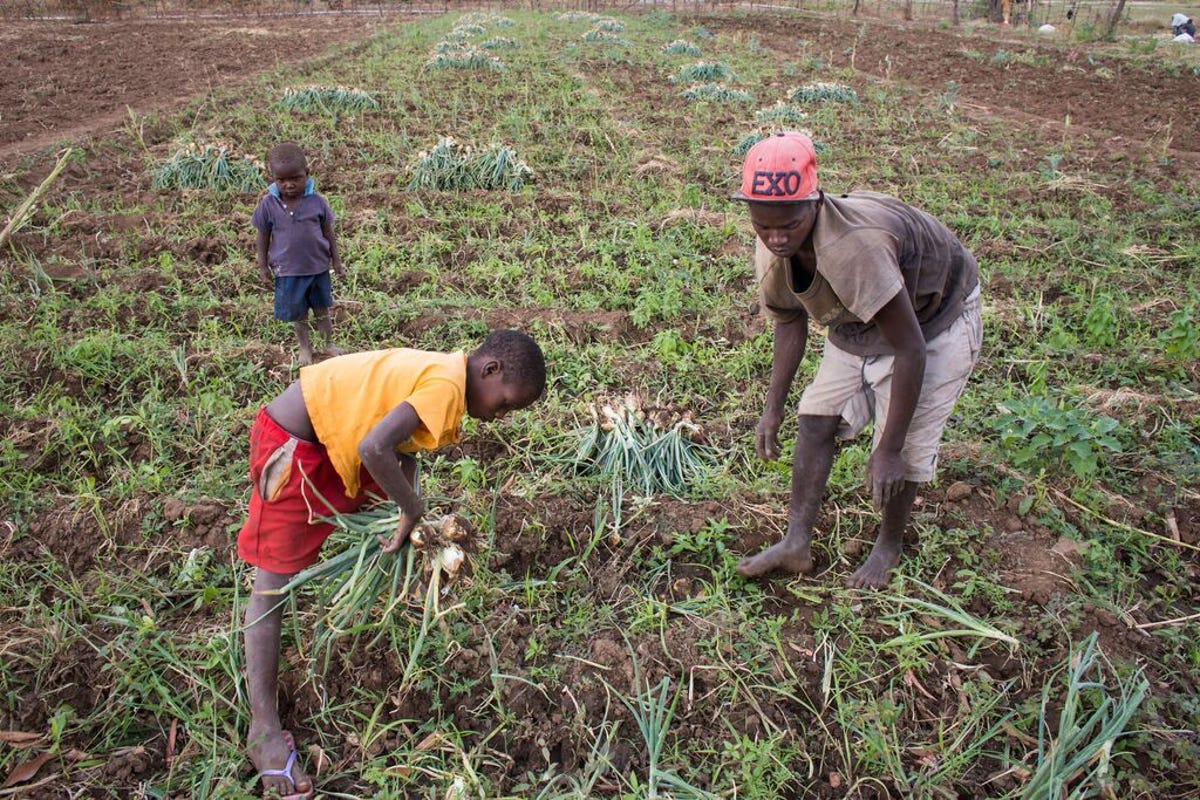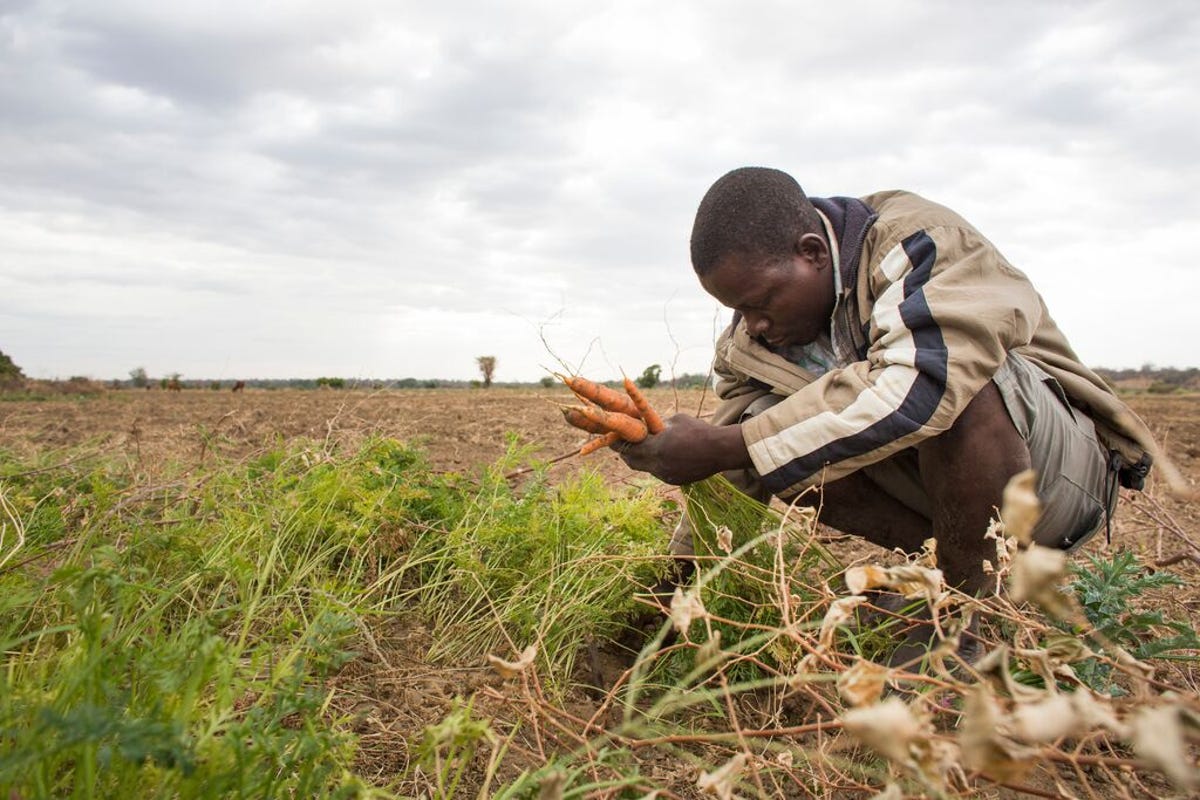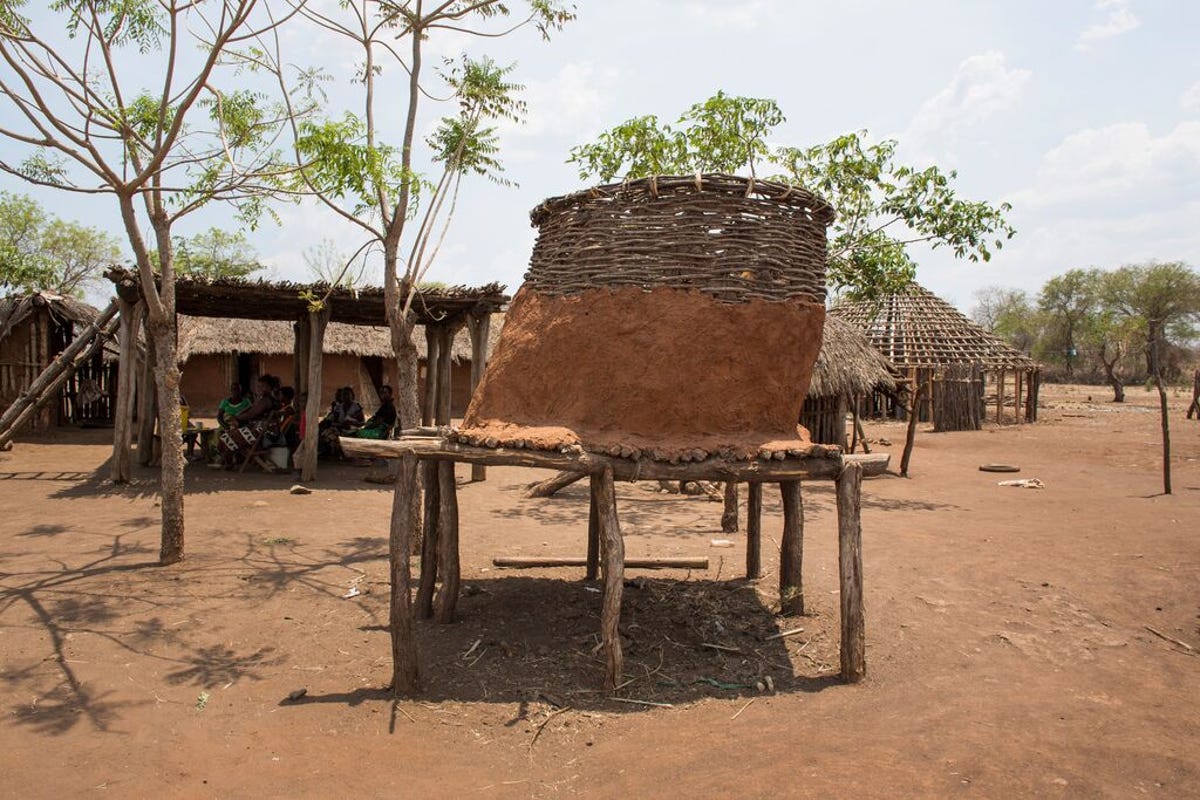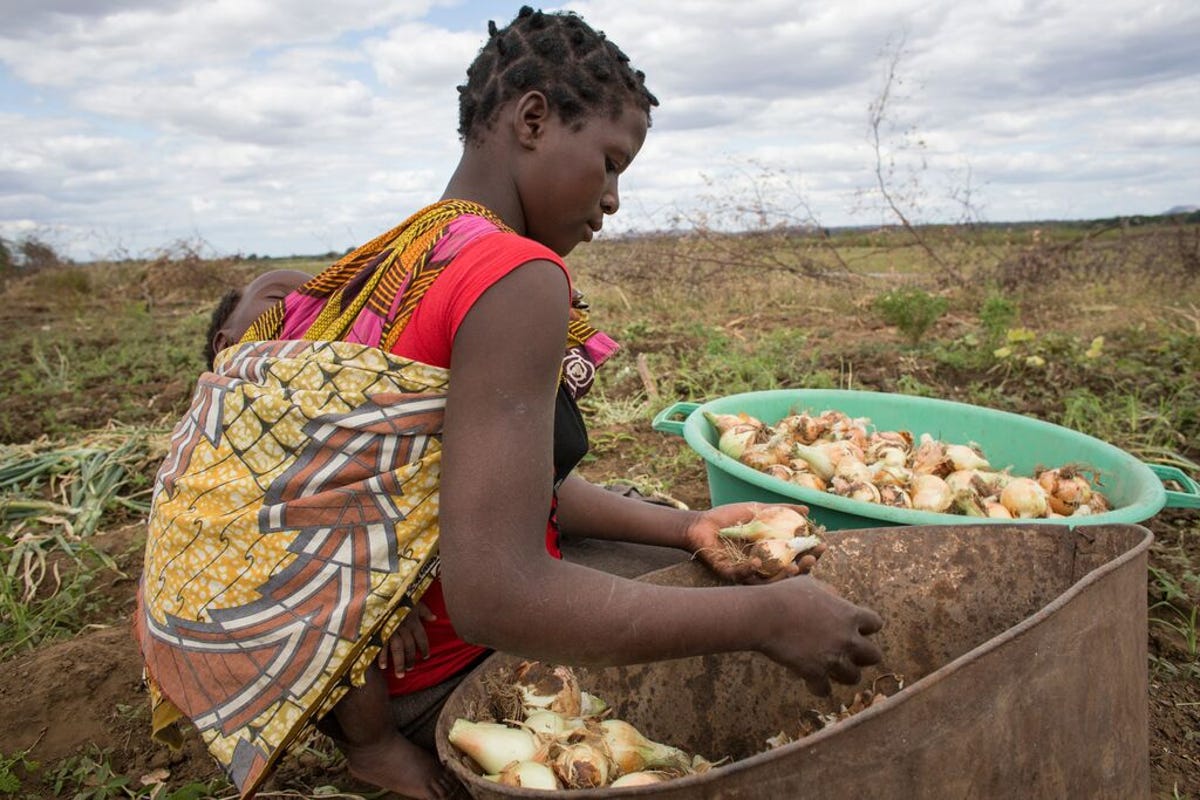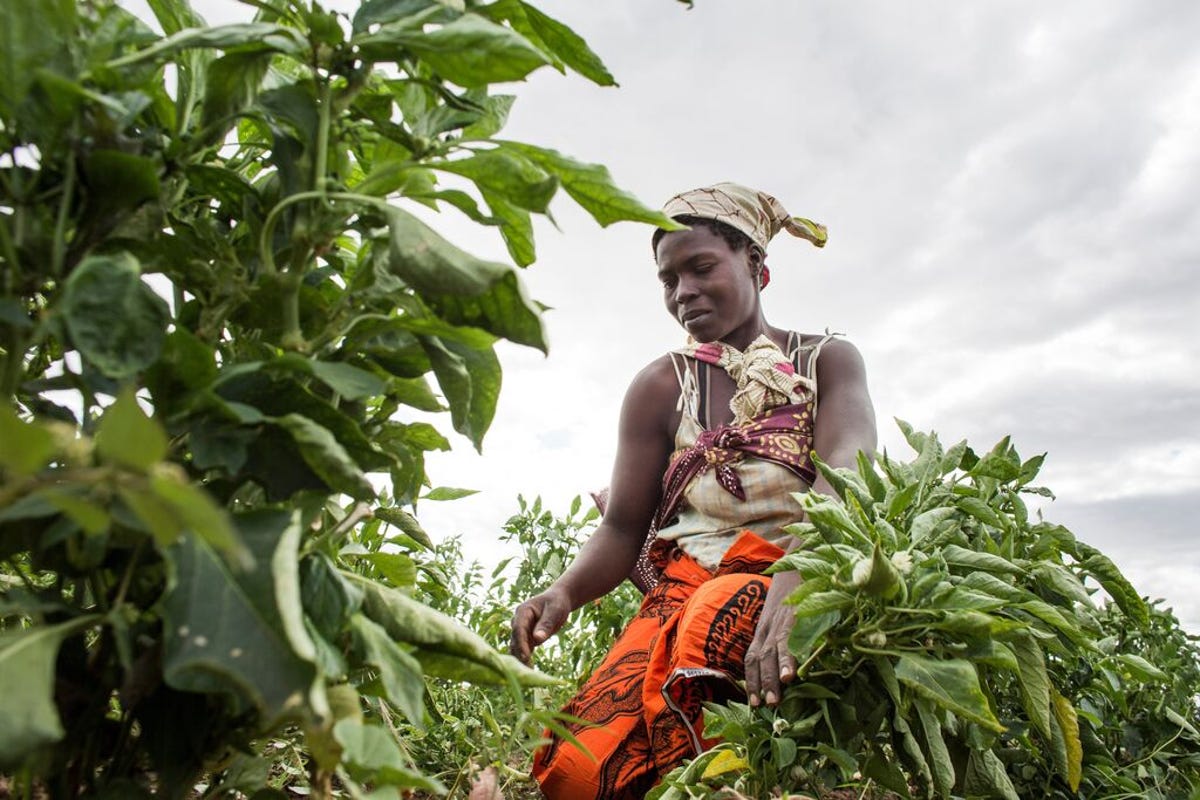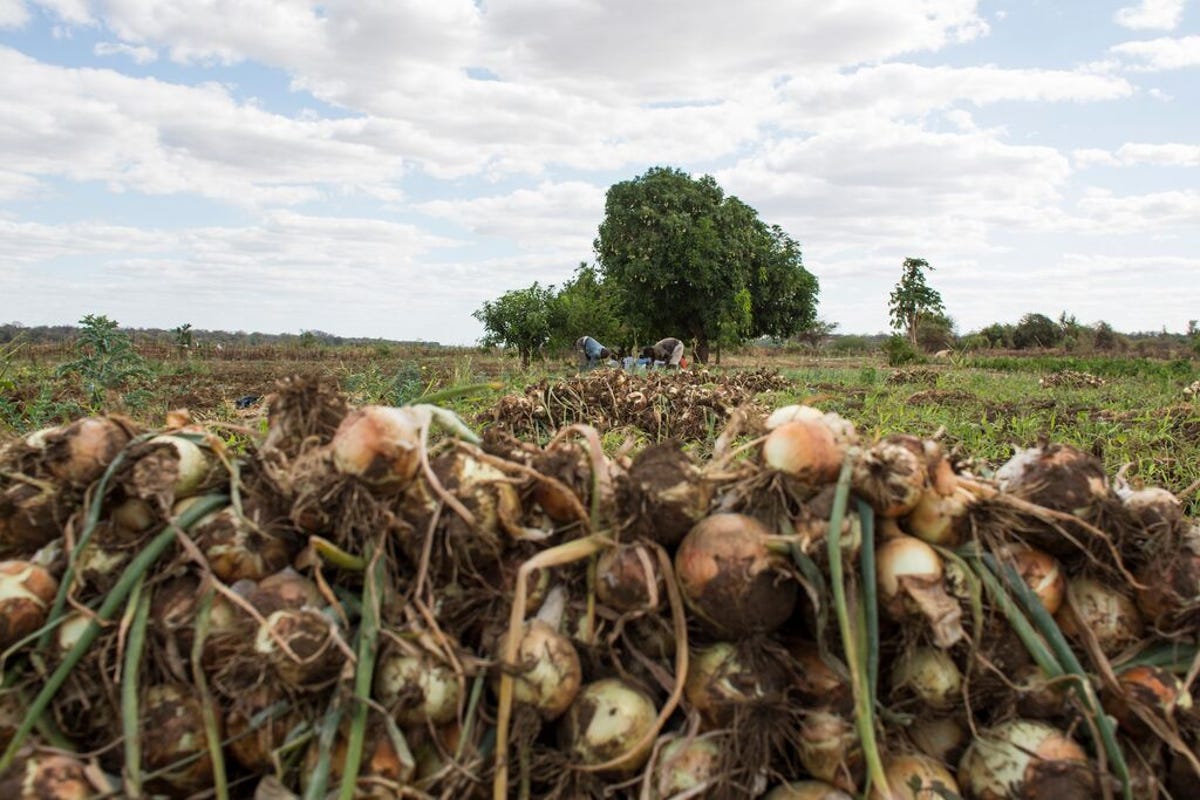BAGS OF HOPE
In celebration of World Food Day, we spoke with Adilson Mangueze from the World Food Programme to better understand the importance of hermetic bags for reducing crop loss.
© Cartier Philanthropy /Andrea Borgarello
African farmers lose 1/3 of their precious crops to inadequate storage.
In Mozambique, over 30% of smallholder farmers’ crops are lost within weeks of harvest every year, mostly to insects, rodents and fungi. For families that rely on agriculture as their primary source of income, these post-harvest losses mean lost food, lost income and wasted water.
It’s wasteful, unsustainable – and preventable.
Hermetically sealed storage bags are a simple and affordable solution that meet the needs of vulnerable smallholder farmers across Mozambique. Not only are they effective against pests, but they enable farmers to earn more money for their crops as they can sell them later in the season, when prices are higher than during the harvest period. A second reason for farmers is health-related, since hermetic storage avoids the need to use pesticides and can also lead to reduced aflatoxin intake.
Since 2017, we’ve been helping to fund the World Food Programme’s (WFP) work to encourage Mozambican farmers to use hermetic bags for crop storage instead of traditional raffia bags, which wear quickly and are easily penetrated by pests.
The initiative was launched in six districts of the northern province of Tete and has since been expanded to a further nine districts across the Manica, Zambézia and Nampula provinces. Over 49,200 smallholder farmers and 722 government extension agents were trained in this storage technique between 2017 and August 2023.
WFP has also engaged the private sector, including national distributors, financial institutions, agro-dealers and farmer-association shops – to manufacture and distribute the hermetic bags locally at an affordable price. Nearly 7,162,090 hermetic bags were produced and sold nationwide at USD 1,65 each on average.
WFP Mozambique is working with farmers to drive the adoption of 100,000 hermetic bags by 2024, increasing farmers’ incomes by up to 35% and their food availability by 50%.
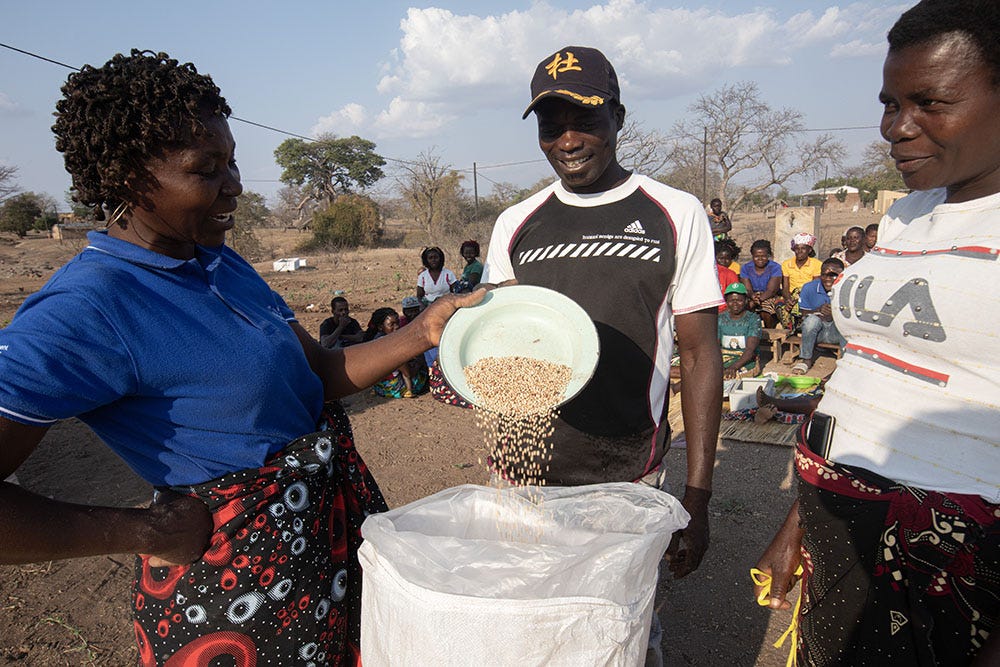
© World Food Programme / Alfredo Zuniga
We spoke with Adilson Mangueze, Programme Policy Officer – Zero Loss Initiative Project Coordinator at WFP to better understand the importance of hermetic bags.
What stands between a simple, proven and affordable solution, like hermetic storage bags, and their nationwide adoption by farmers? How does WFP encourage farmers to change their behaviour and promote the correct use of hermetic bags?
Adoption of new technologies always takes time, especially in rural areas. Smallholder farmers are normally late adopters of new approaches due to their socio-economic conditions and lack of access to innovative solutions. However, when they see the results and understand the cost-benefit advantages, the adoption is often immediate. The same applies in Mozambique, where the hermetic bag is a new technology and availability is still incipient among small farming communities. WFP is committed to drive the awareness and adoption of this useful technology both on the demand and supply side. We promote hermetic bags to farmers through trainings, demonstrations, roadshows, TV and radio messages and free distributions of the bags, allowing farmers to experience the benefits at household or community level.
How much does a robust local supply chain and lean distribution channels contribute to the adoption of hermetic bags by smallholder farmers?
A robust local supply chain and lean channels distribution contribute to the adoption through spatial and temporal availability of the technology and competitive prices. These factors are both key to achieving a broad, swift, and sustainable adoption at community level. We are working with partners to expand the hermetic bags distribution network in Mozambique, with an emphasis on what we call “the last mile” – that farthest-to-reach section of farmers who are often those who most need our assistance. We do this through the network of agro-dealers which play a pivotal role as champions of hermetic bags availability at community level.
Is it possible to estimate the additional profit that a farmer can expect to make by using hermetic bags?
By using the hermetic bags, farmers can more effectively store their products until the lean season and sell at about double the price of the harvest season, increasing their margin profit by up to 50%: if, for example, they make MZN 100 per bag using ordinary bags, with hermetic bags they can increase to MZN 150 per bag.
The promotion, production, adoption and correct use of hermetic bags is just part of what’s needed to ensure that farming families are fed, healthy and more prosperous. What other interventions and innovations is WFP putting in place to strengthen and increase the benefits of hermetic bags for smallholder farmers?
Farming is a profit-driven venture, so market linkages are key in driving adoption. Without them, no matter how premium your product is, selling at higher prices will always be a challenge. That’s why WFP is working on digital innovations to link farmers to buyers. As an example, WFP Mozambique deployed a digital marketplace platform in the Tete province called Farm2Go, where farmers place their products with buyers and deals are closed in a simple, cheap, and open way.

